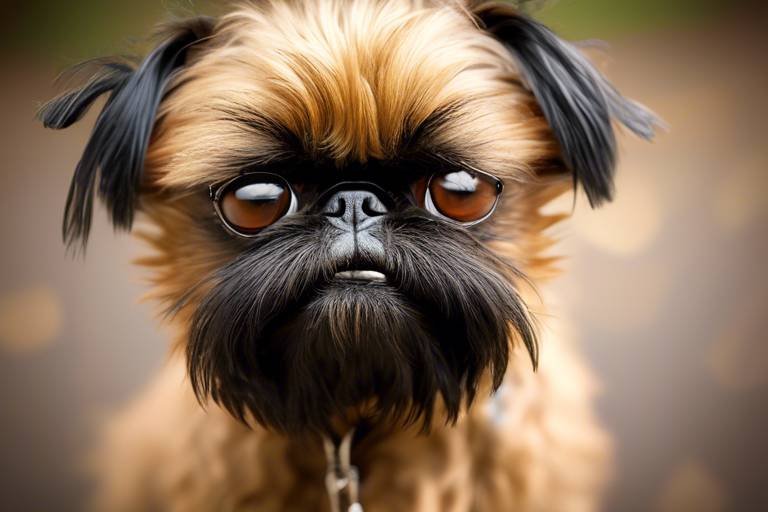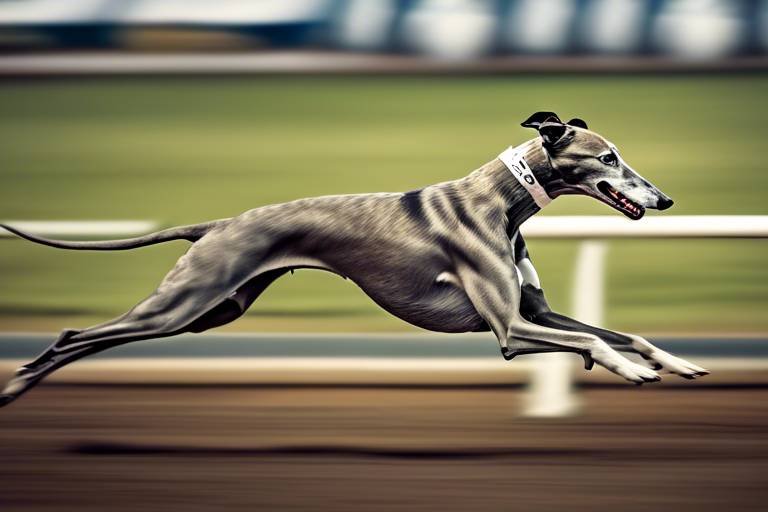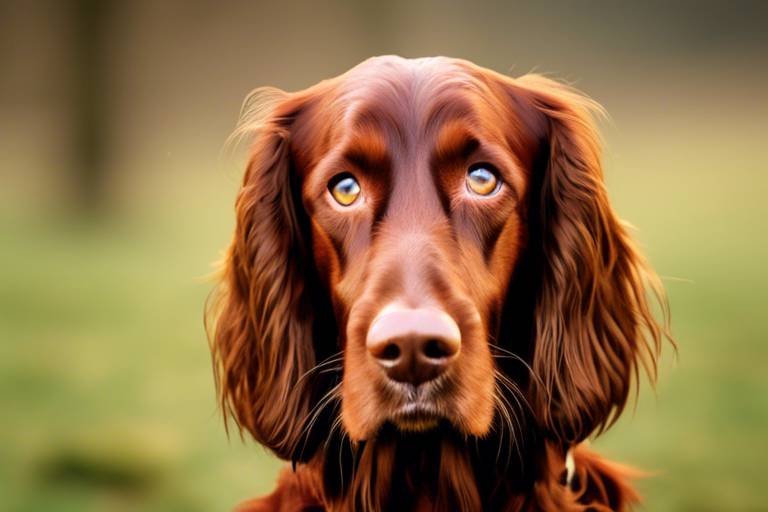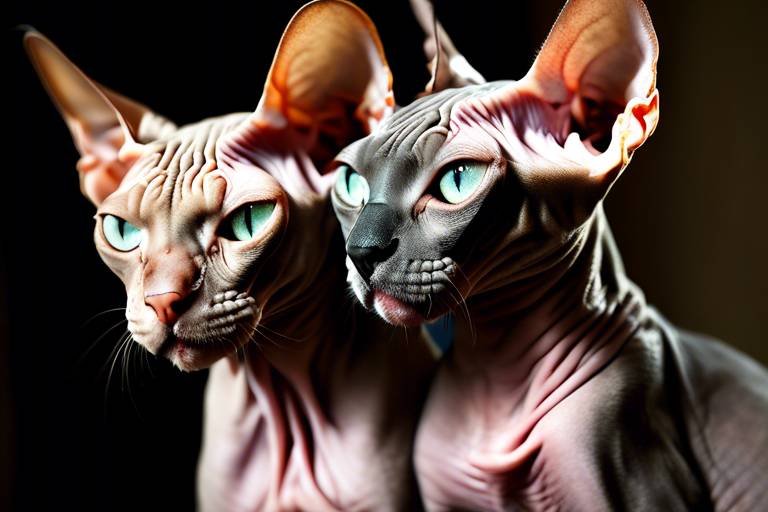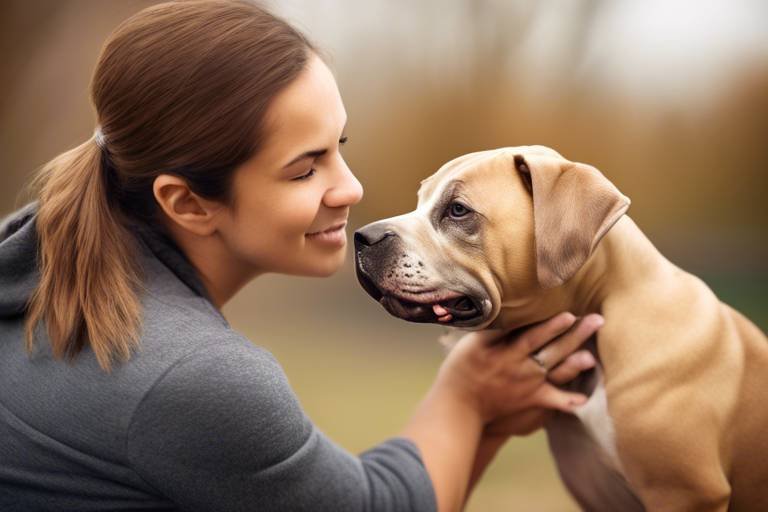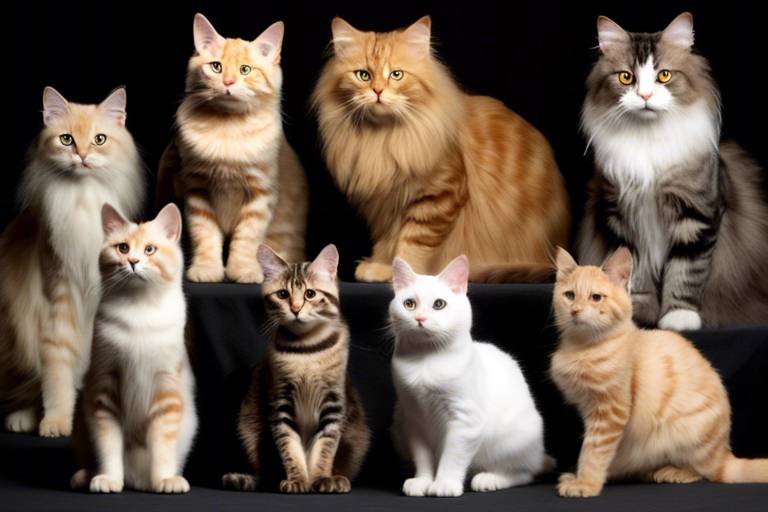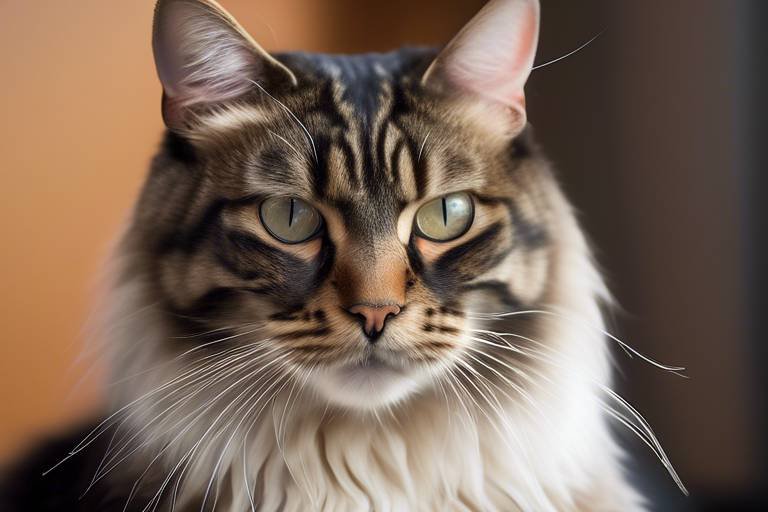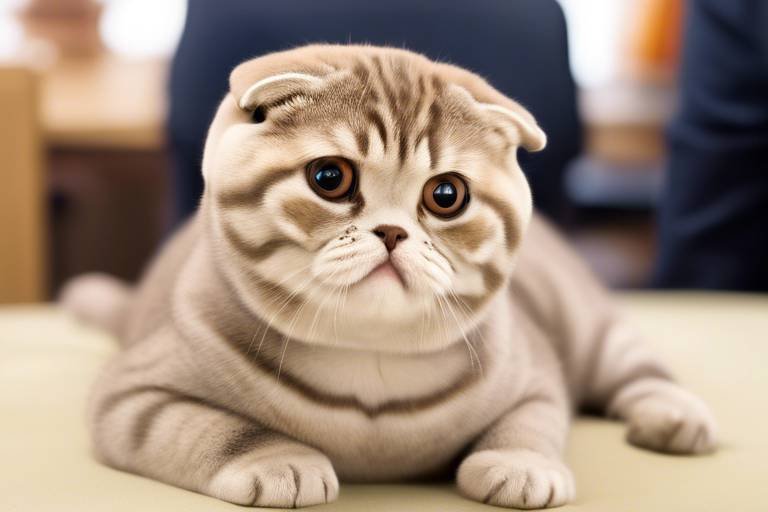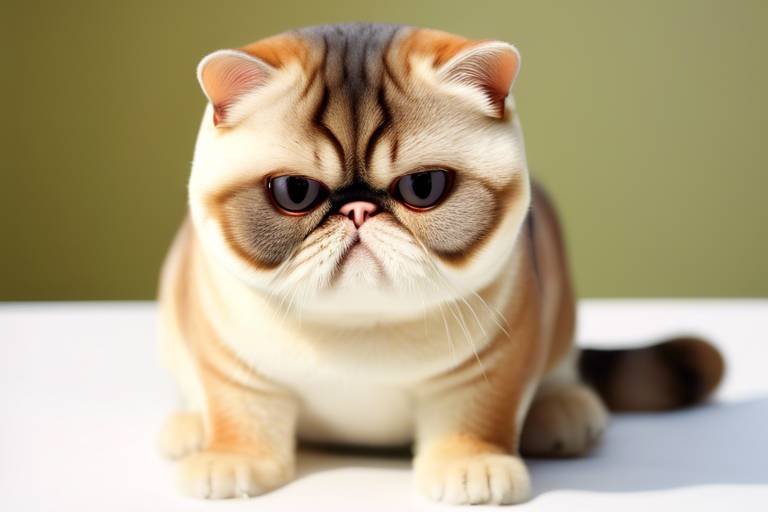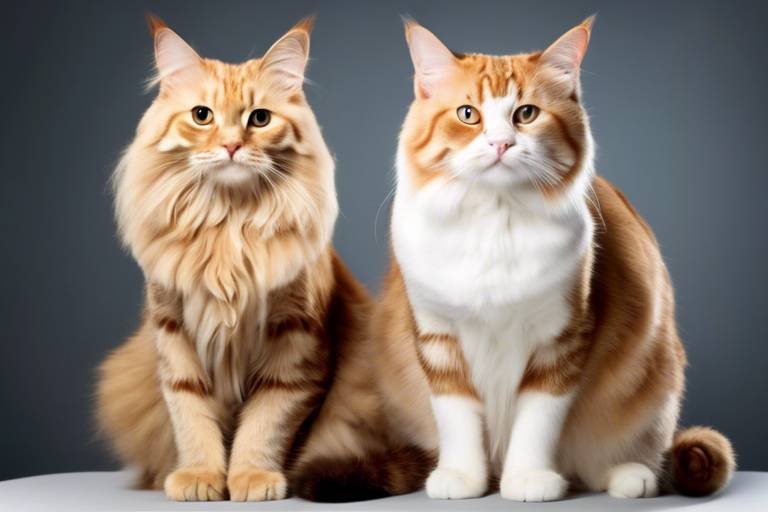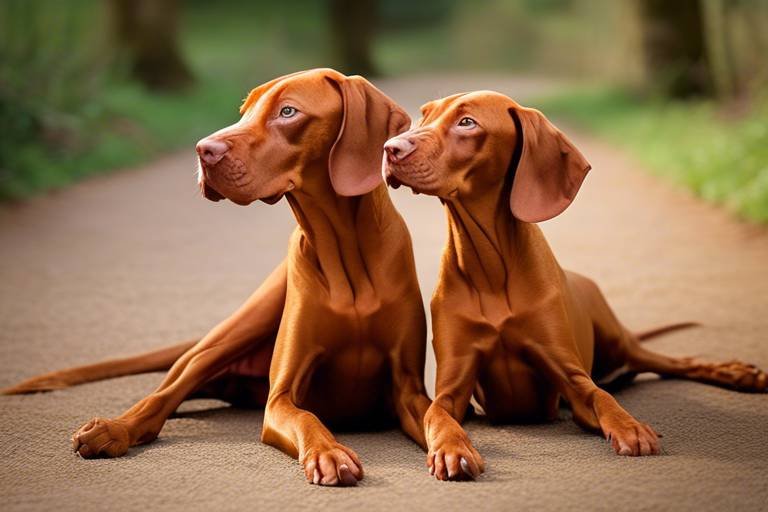The Unique Characteristics of the Brussels Griffon
The Brussels Griffon is not just another small dog breed; it’s a delightful bundle of personality wrapped in a unique appearance. If you've ever laid eyes on one, you know exactly what I mean. These little companions have a knack for capturing hearts with their expressive faces and charming antics. Imagine a dog that seems to wear its emotions on its face—those big, round eyes and short snouts give them a look that's both adorable and quirky. It's as if they were designed to be the stars of their own show, and trust me, they know it!
In this article, we will dive deep into what makes the Brussels Griffon stand out from the crowd. From their physical traits to their lovable temperament, and even their grooming needs, you’ll discover why this breed is so cherished by dog lovers everywhere. Whether you're considering adding a Griffon to your family or simply want to learn more about them, you're in for a treat. So, let’s embark on this journey to uncover the unique characteristics of the Brussels Griffon!
The Brussels Griffon is characterized by its distinctive facial features, compact size, and unique coat types. Their expressive eyes and short snouts contribute to their charming and endearing look. Standing at just 7 to 12 pounds, these little dogs are often described as toy-sized, but don’t let their size fool you; they have a personality that fills any room they enter. Their coats can be either rough or smooth, adding to their unique charm. The rough-coated Griffons have a wiry, tousled look that gives them a slightly scruffy appearance, while the smooth-coated ones sport a sleek, shiny coat that’s equally appealing.
One of the most striking features of the Brussels Griffon is their facial expression. With a flat face and a short muzzle, they almost resemble little monkeys, which only adds to their charm. Their eyes, which are dark and round, convey a sense of intelligence and curiosity, making it hard to resist their gaze. You might even find yourself getting lost in those big eyes, wondering what they’re thinking!
Known for their lively and affectionate nature, Brussels Griffons are intelligent dogs that form strong bonds with their owners. Their playful demeanor makes them excellent companions for families and individuals alike. Imagine coming home after a long day, and there’s your Griffon, tail wagging, ready to shower you with love and attention. They thrive on interaction and are known to be quite the little clowns, often engaging in antics that will have you laughing out loud.
Brussels Griffons are generally friendly and social dogs. They enjoy interacting with people and other pets, making them suitable for various living situations, including homes with children and other animals. These dogs are not just pets; they are family members who want to be included in all the fun. Whether it’s a game of fetch or simply lounging on the couch, they are always up for spending quality time with their loved ones.
These dogs are known to be gentle and patient with children, often forming strong attachments. Their playful nature allows them to engage in fun activities with kids, enhancing family dynamics. Imagine a little Griffon playfully tugging at a child’s shoelaces or snuggling up for storytime. They have an innate ability to connect with children, making them a wonderful addition to any family.
Brussels Griffons usually adapt well to living with other pets. Their sociable nature encourages harmonious relationships, although early socialization is essential to ensure a smooth integration. Picture a lively household where a Brussels Griffon plays happily with a cat or another dog—it's a sight to behold! Just remember, like any breed, early exposure to different animals and environments will help them grow into well-rounded companions.
Brussels Griffons are intelligent dogs that respond well to positive reinforcement training methods. Their eagerness to please makes them quick learners, though they can sometimes exhibit stubbornness. Think of training a Griffon as a fun game—using treats and praise to encourage good behavior will yield fantastic results. Just be patient and consistent, and you’ll find that they are capable of learning a variety of commands and tricks.
Grooming is an essential aspect of caring for a Brussels Griffon. Their unique coat types require regular maintenance to keep them looking their best and to promote overall health. Depending on whether you have a rough or smooth-coated Griffon, grooming needs will vary. Rough-coated Griffons require more frequent brushing to prevent matting, while smooth-coated ones may need less frequent grooming but still benefit from regular brushing to keep their coat shiny and healthy.
Brussels Griffons come in two coat varieties: rough and smooth. Each type has specific grooming requirements, with rough-coated Griffons needing more frequent brushing to prevent matting. If you’re considering adopting a Griffon, be prepared for some grooming sessions that can turn into bonding time—after all, who doesn’t love a little pampering?
Understanding the common health issues associated with Brussels Griffons is crucial for responsible ownership. Regular veterinary check-ups and a healthy lifestyle can help mitigate potential health problems. Like any breed, they can be prone to certain health issues, so being informed and proactive about their health will ensure your Griffon lives a long, happy life.
- Are Brussels Griffons good with children? Yes, they are known to be gentle and playful with kids, making them great family pets.
- How much grooming do they require? Rough-coated Griffons need more frequent brushing, while smooth-coated ones require less.
- Do they get along with other pets? Generally, yes! Early socialization helps them adapt well to living with other animals.
- Are they easy to train? They are intelligent and eager to please but can be a bit stubborn at times.
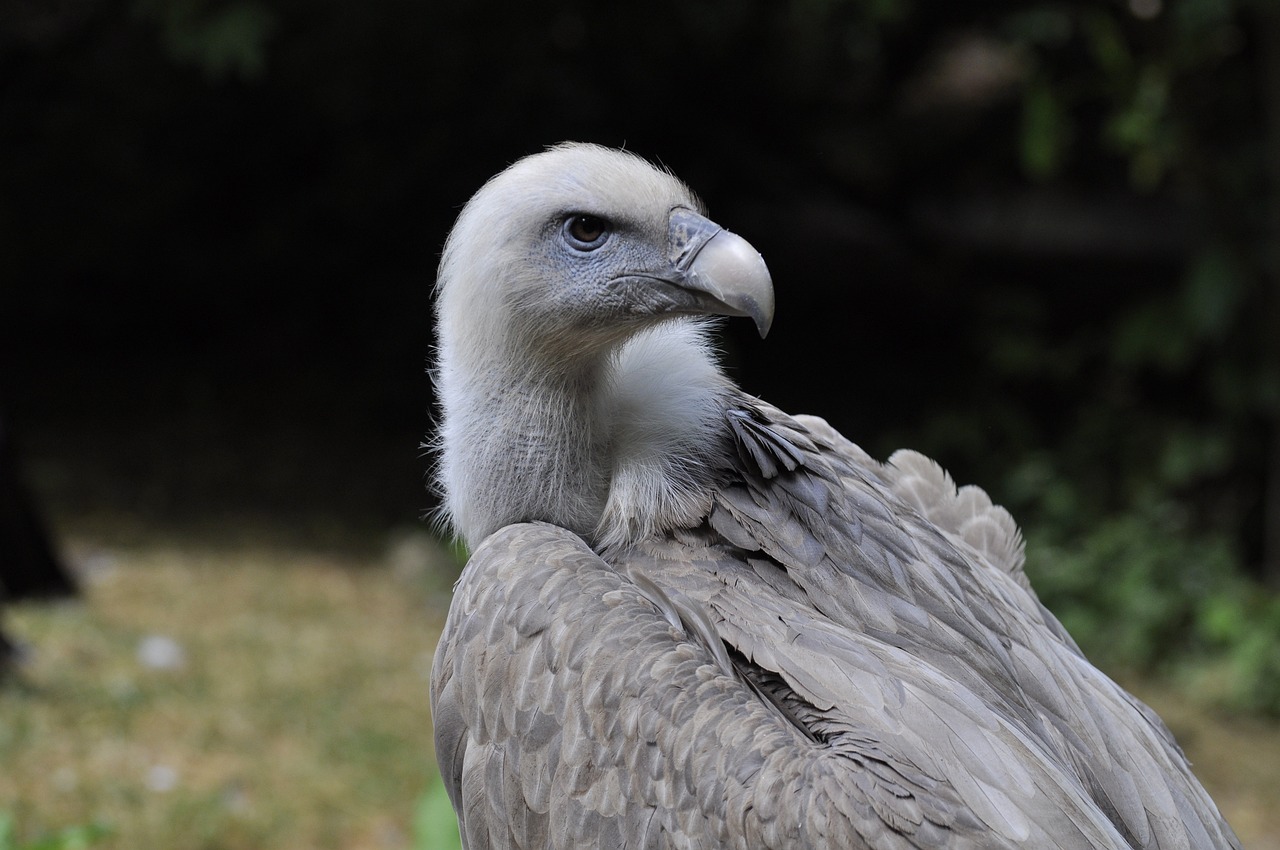
Physical Appearance
The Brussels Griffon is a small dog breed that captivates the hearts of many with its unique and charming appearance. These delightful little companions typically weigh between 8 to 12 pounds and stand about 7 to 12 inches tall at the shoulder. Their compact size makes them perfect for both apartment living and larger homes, but it's their distinctive facial features that truly set them apart.
One of the most striking aspects of the Brussels Griffon is its expressive face. They have large, round eyes that sparkle with intelligence and curiosity, giving them a perpetually endearing look. Their short, pushed-in snouts add to their character, often resembling that of a monkey or a tiny lion. This unique facial structure not only enhances their charm but also contributes to their expressive range of emotions, making it easy for owners to connect with them. When you look into the eyes of a Brussels Griffon, you can’t help but feel a sense of companionship and warmth.
Brussels Griffons come in two coat types: rough and smooth. The rough-coated variety has a dense, wiry coat that gives them a distinctive scruffy look, while the smooth-coated variety features a short, sleek coat that is equally appealing. Regardless of the coat type, these dogs require regular grooming to maintain their appearance and health. For the rough-coated Griffons, frequent brushing is essential to prevent matting and to keep their coat looking fabulous. On the other hand, smooth-coated Griffons need less maintenance, but occasional brushing will help keep their coat shiny and healthy.
| Coat Type | Grooming Needs |
|---|---|
| Rough | Frequent brushing to prevent matting |
| Smooth | Occasional brushing for shine |
Another notable feature of the Brussels Griffon is their compact body. They possess a sturdy build with a broad chest and a slightly rounded back. Their legs are short but strong, allowing them to move with a lively and spirited gait. This breed's tail is often docked, giving them a characteristic bobbed appearance that adds to their overall charm. When you see a Brussels Griffon strutting around, you can’t help but admire their confident and playful demeanor.
In summary, the physical appearance of the Brussels Griffon is a delightful combination of endearing facial features, varied coat types, and a compact body. Their unique looks and vibrant personality make them a standout breed, loved by many dog enthusiasts. Whether you are drawn in by their expressive eyes or their charming scruffiness, there’s no denying that these little dogs have a way of capturing hearts wherever they go.
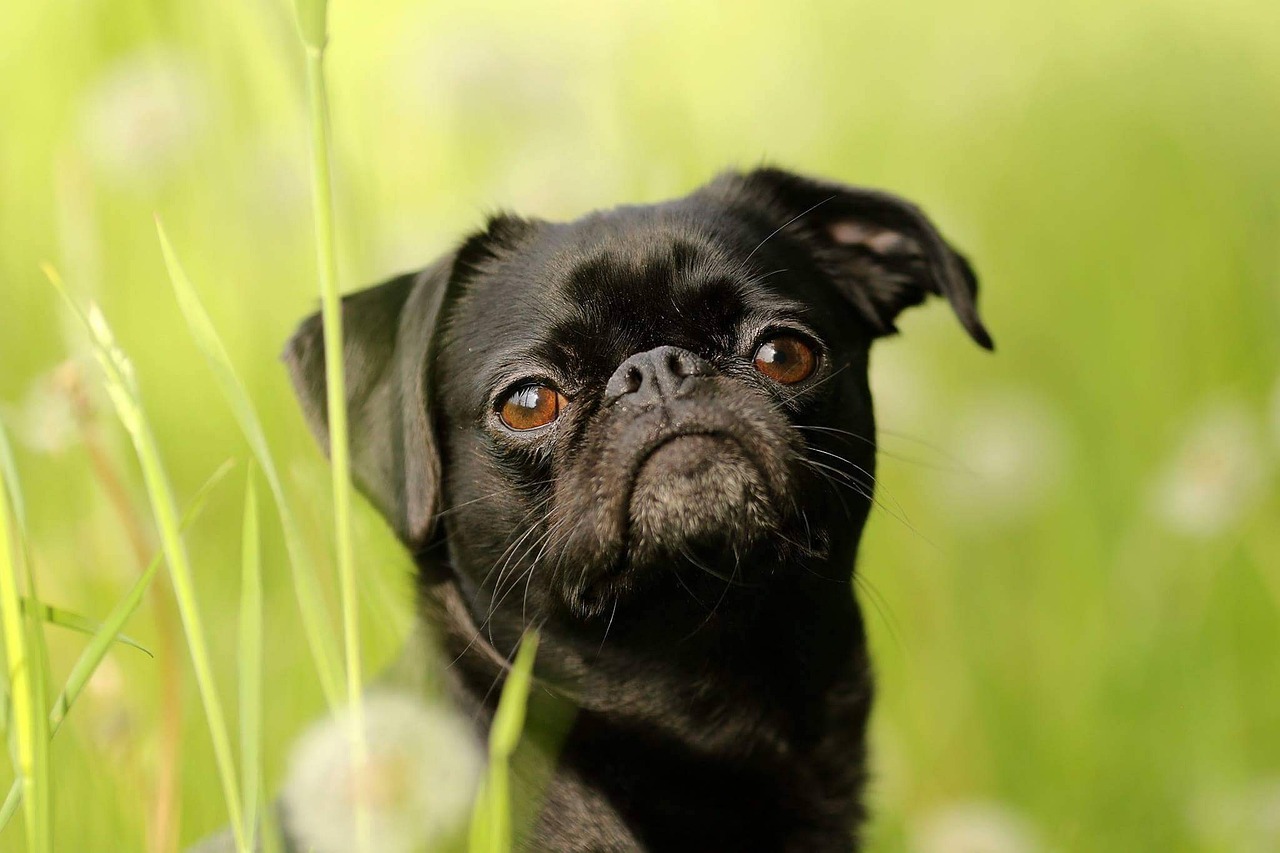
Temperament
The Brussels Griffon is not just a pretty face; their temperament is one of their most endearing qualities. These little dogs are known for their lively and affectionate nature, making them a delightful addition to any household. Imagine having a furry friend who possesses a personality as vibrant as a sunny day—this is what you get with a Brussels Griffon! They are incredibly intelligent and often form strong, lasting bonds with their owners. This breed thrives on companionship and is always eager to be part of family activities, whether it's snuggling on the couch or joining in on outdoor adventures.
One of the most charming aspects of the Brussels Griffon's character is their playful demeanor. It's like having a tiny comedian in your home, always ready to entertain with their silly antics. They love to engage in playful activities, which not only keeps them active but also strengthens the bond with their humans. Have you ever seen a dog that can turn a simple game of fetch into a hilarious spectacle? That’s the Brussels Griffon for you! Their playful spirit makes them excellent companions for families and individuals alike, as they bring joy and laughter wherever they go.
Brussels Griffons are generally friendly and social dogs. They thrive on interaction, not just with their human family but also with other pets. This sociable nature makes them suitable for various living situations, including homes bustling with children and other animals. They have a unique ability to adapt to their environment, which is a quality that many dog breeds lack. When you walk into a room, you’ll often find them at the center of attention, eagerly seeking out cuddles and playtime.
When it comes to kids, Brussels Griffons are known for their gentle and patient demeanor. They often form strong attachments to children, becoming their little protectors and playmates. Their playful nature allows them to engage in fun activities with kids, from chasing balls to participating in imaginative games. This interaction not only enhances family dynamics but also teaches children valuable lessons in empathy and responsibility. Imagine your child and your Griffon teaming up for a fun day of adventure; it’s a heartwarming sight!
Brussels Griffons usually adapt well to living with other pets. Their sociable nature encourages harmonious relationships, although early socialization is essential to ensure a smooth integration. They often exhibit a friendly curiosity towards other animals, which can lead to delightful friendships. However, it's important to monitor their interactions, especially with larger pets, to ensure everyone is comfortable and safe. Think of it as a tiny diplomat, navigating the social waters of your household, ensuring peace and harmony reign supreme.
Training a Brussels Griffon can be a rewarding experience, given their intelligence and eagerness to please. These dogs respond exceptionally well to positive reinforcement training methods, making the learning process enjoyable for both the dog and the owner. However, be prepared for a bit of stubbornness! Just like a toddler testing boundaries, these little ones may sometimes challenge your commands. Patience and consistency are key. Their intelligence means they can learn tricks and commands quickly, often surprising their owners with their abilities.
- Are Brussels Griffons good with children?
Yes, they are generally gentle and patient, making them great companions for kids. - Do Brussels Griffons require a lot of grooming?
Yes, especially the rough-coated variety, which needs regular brushing to prevent matting. - How much exercise do Brussels Griffons need?
They enjoy playtime and short walks but are also content with indoor play. - Are Brussels Griffons prone to any health issues?
Like all breeds, they can be prone to certain health conditions, so regular vet check-ups are essential.
Social Behavior
The social behavior of the Brussels Griffon is one of the many reasons why this breed is adored by dog lovers around the world. These little furballs are not just pets; they are vibrant members of the family who thrive on interaction and companionship. Their friendly disposition makes them excellent candidates for various living situations, whether it be a bustling family home or a cozy apartment. Have you ever seen a dog that genuinely lights up when it sees you? That’s the Brussels Griffon for you!
Brussels Griffons are naturally curious and enjoy engaging with their human companions. They are known to follow their owners around the house, eager to be part of every activity. This breed is particularly sociable, often forming close bonds with both people and other pets. Their playful antics can bring joy to any household, and they have a knack for making even the dullest days a little brighter.
When it comes to interacting with children, Brussels Griffons shine. These dogs are typically gentle and patient, making them ideal playmates for kids. They often form strong attachments with children, enjoying games of chase or simply cuddling up for a nap after an energetic play session. Their affectionate nature is a perfect match for family dynamics, as they provide both companionship and entertainment.
While they are generally friendly, early socialization is crucial for Brussels Griffons. Introducing them to various environments, people, and other animals while they are young can help ensure they grow into well-adjusted adults. This breed tends to get along well with other pets, but it’s essential to monitor their interactions, especially during the initial introductions. A little patience and positive reinforcement can go a long way in fostering harmonious relationships.
In summary, the social behavior of the Brussels Griffon is characterized by its affectionate, playful, and sociable nature. They are not just dogs; they are companions who thrive on love and interaction, making them a delightful addition to any home.
- Are Brussels Griffons good with children? Yes, they are known for their gentle and playful nature, making them great companions for kids.
- How do Brussels Griffons behave with other pets? They generally adapt well to living with other animals, especially if they are socialized early.
- Do Brussels Griffons require a lot of grooming? Yes, particularly the rough-coated variety, which needs regular brushing to prevent matting.
- Are they easy to train? They are intelligent and eager to please, but they can be a bit stubborn at times.
Interaction with Children
The Brussels Griffon is not just a pet; it’s a little bundle of joy that thrives in the company of children. Known for their gentle and patient nature, these dogs often form strong, affectionate bonds with the little ones in the family. Imagine a small dog with a big heart, ready to engage in playful antics that can keep children entertained for hours. Their playful demeanor allows them to participate in various activities, from playful chases in the backyard to cozy snuggles on the couch during movie nights.
One of the most delightful aspects of having a Brussels Griffon around kids is their natural instinct to protect and care for them. They have a way of sensing when a child is upset or needs comfort, often curling up beside them or gently nudging them with their nose. This nurturing behavior not only enhances the emotional bond between the dog and the child but also teaches kids valuable lessons about empathy and responsibility.
However, it’s important to remember that all interactions should be supervised. While Brussels Griffons are generally friendly and tolerant, teaching children how to interact properly with dogs is crucial. Here are a few tips to ensure a harmonious relationship:
- Teach Gentle Touch: Encourage children to pet the dog softly and avoid any rough play that could scare or hurt the Griffon.
- Respect Boundaries: Make sure kids understand when the dog wants to be left alone, especially during mealtime or when it’s resting.
- Positive Reinforcement: Reward both the dog and the child for good behavior during their interactions to create a positive environment.
Brussels Griffons also love to play games that involve chasing toys or fetching, which can be a fantastic way for children to burn off energy while building a bond with their furry friend. Their curiosity and playful spirit ensure that they are always up for a game, making them a great companion for children of all ages. Overall, the Brussels Griffon’s interaction with children is a beautiful dance of love, laughter, and learning, creating memories that will last a lifetime.
Q1: Are Brussels Griffons good with children?
A1: Yes, Brussels Griffons are known for their gentle and affectionate nature, making them excellent companions for children.
Q2: How do I ensure safe interactions between my Griffon and my kids?
A2: Supervise playtime, teach children to be gentle, and respect the dog's space to ensure a safe and enjoyable experience for both.
Q3: Can Brussels Griffons handle rough play from children?
A3: While they are generally tolerant, it's important to teach children to play gently to avoid stressing or injuring the dog.
Q4: What activities can my child do with a Brussels Griffon?
A4: Kids can engage in fetch, hide-and-seek, or simply cuddle with their Griffon, as these dogs love being involved in family activities.
Compatibility with Other Pets
The Brussels Griffon is often celebrated for its friendly and sociable nature, making it a wonderful addition to homes with other pets. These little dogs are not only charming but also possess a unique ability to adapt to various living situations. When introduced properly, they can form harmonious relationships with other animals, whether they are dogs, cats, or even small pets like rabbits. However, it's important to understand that their social skills can vary based on individual temperament and early socialization experiences.
One of the key factors in ensuring a successful integration of a Brussels Griffon with other pets is early socialization. This means exposing them to different animals and environments from a young age. Doing so helps them develop confidence and reduces the likelihood of fear or aggression towards unfamiliar pets. When socialized well, Griffons are known to be playful and affectionate, often engaging in games and activities with their furry companions. Imagine a small dog bouncing around the living room, inviting your cat to join in a playful chase—it's a sight that brings joy to any pet owner!
It’s also important to consider the size and temperament of the other pets in the household. For instance, larger dogs may unintentionally intimidate a small Brussels Griffon, while more assertive pets might overwhelm them. Therefore, careful introductions and monitoring during playtime are essential. Here are some tips to promote a peaceful coexistence:
- Supervised Introductions: Always supervise initial interactions to ensure safety and comfort for all pets involved.
- Positive Reinforcement: Reward both the Griffon and the other pets for calm behavior during introductions.
- Separate Spaces: Provide separate areas for each pet to retreat to when they need personal space.
In summary, with the right approach and a little patience, Brussels Griffons can thrive in multi-pet households. Their affectionate personality and playful nature often lead to delightful friendships with other animals, enriching the lives of everyone in the home. So, if you're considering adding a Brussels Griffon to your family, you can rest assured that they have the potential to get along beautifully with your existing pets!
Q: Are Brussels Griffons good with cats?
A: Yes, Brussels Griffons can be good with cats, especially if they are socialized together from a young age. They often enjoy playful interactions and can form strong bonds with feline friends.
Q: How can I help my Brussels Griffon adjust to new pets?
A: Gradual introductions, supervised interactions, and positive reinforcement are key. Allow your Griffon to explore the new pet's scent before meeting face-to-face to ease anxiety.
Q: What should I do if my Brussels Griffon shows aggression towards other pets?
A: It's important to address aggressive behavior immediately. Consult with a professional dog trainer or behaviorist who can provide tailored strategies for your situation.
Training and Intelligence
The Brussels Griffon is not just a pretty face; this breed is packed with intelligence and a willingness to learn that can make training a delightful experience. These dogs are known for their keen minds, and they thrive on mental stimulation. However, it's essential to approach their training with a mix of patience and creativity. Imagine trying to teach a child to ride a bike; if you push too hard, they might resist, but with encouragement and fun, they'll be eager to learn. This analogy perfectly encapsulates the training philosophy for a Brussels Griffon.
When it comes to training methods, positive reinforcement is the way to go. This means rewarding your Griffon with treats, praise, or playtime when they successfully follow a command. For instance, if your Griffon sits on command, shower them with affection and a tasty treat. This approach not only builds a strong bond between you and your pet but also makes learning enjoyable for them. Just like us, dogs respond better when they feel appreciated rather than scolded for mistakes.
However, it’s crucial to recognize that Brussels Griffons can sometimes display a stubborn streak. They might decide that they’d rather chase a butterfly than follow your command. In these moments, maintaining a calm demeanor is vital. Instead of getting frustrated, try to redirect their attention back to the task at hand. Incorporating play into training sessions can also help keep their focus. For example, you might use a favorite toy as a reward for completing tasks, turning training into a fun game.
Another important aspect of training is socialization. Early exposure to various environments, people, and other animals can help your Griffon develop into a well-rounded adult dog. Think of socialization as a form of education for your pup; the more experiences they have, the more confident and adaptable they will become. Take them to parks, introduce them to friendly dogs, and invite friends over to create a variety of social experiences.
In summary, training a Brussels Griffon can be a rewarding journey filled with joy and laughter. Their intelligence, combined with their affectionate nature, makes them eager learners. Just remember to approach training with positivity, patience, and plenty of fun, and you'll be amazed at what your little companion can achieve!
- How long does it take to train a Brussels Griffon? Training duration can vary, but with consistent practice, you can see results within a few weeks.
- Are Brussels Griffons easy to potty train? Like many small breeds, they can be a bit challenging to potty train, but with a regular schedule and positive reinforcement, it is achievable.
- What are some common commands to teach a Brussels Griffon? Basic commands like sit, stay, come, and heel are great starting points for training.
- Can Brussels Griffons participate in agility training? Absolutely! Their intelligence and agility make them excellent candidates for agility training.
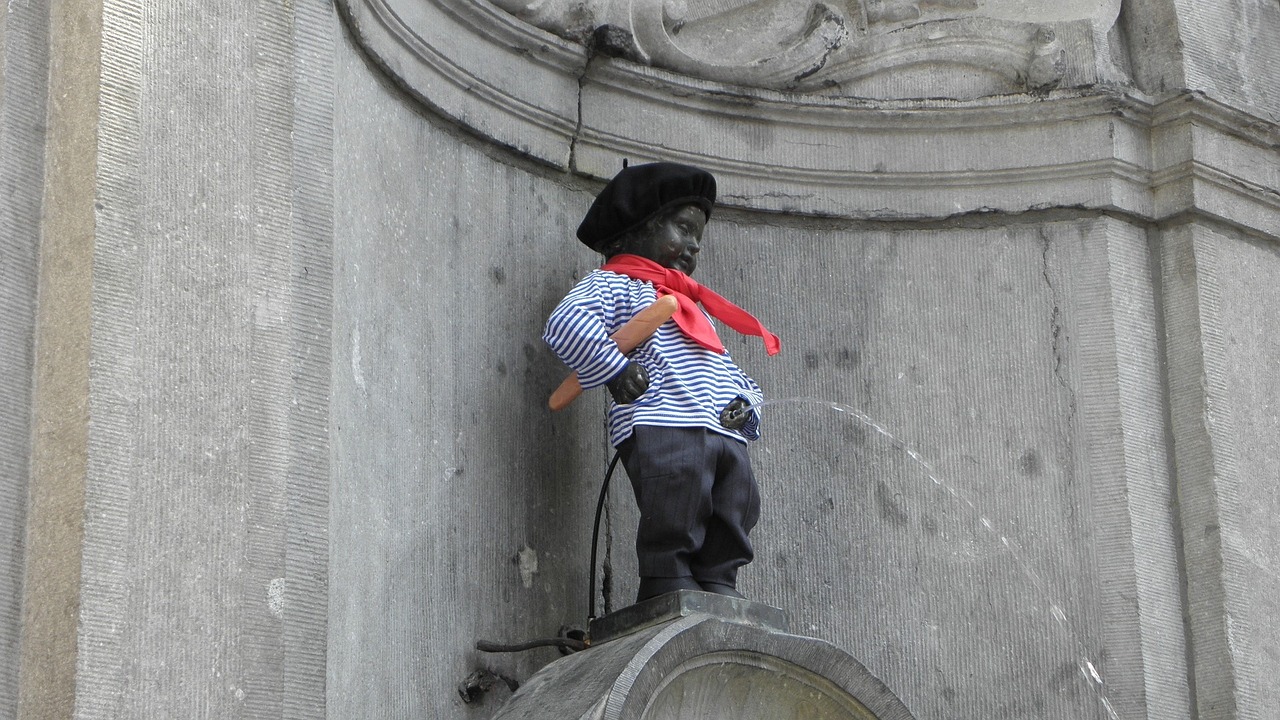
Grooming Needs
When it comes to caring for a Brussels Griffon, grooming is not just a chore; it's a delightful way to bond with your furry friend. These little dogs have unique coat types that require specific attention to keep them looking fabulous and feeling comfortable. Regular grooming sessions can be a wonderful opportunity for you to check for any skin issues and to keep your pup's coat healthy and shiny. The Brussels Griffon comes in two distinct coat varieties: the rough coat and the smooth coat. Each type has its own grooming requirements, which we'll explore in detail.
The rough-coated Brussels Griffon has a wiry, dense coat that adds to its charming appearance. This coat type requires frequent brushing—ideally, two to three times a week—to prevent matting and tangles. It's essential to use a slicker brush or a comb designed for long-haired breeds to ensure that you’re effectively removing loose hair and debris. When you brush your Griffon, think of it as a mini spa day; they typically enjoy the attention and the gentle massage that comes with it!
On the other hand, the smooth-coated Brussels Griffon has a short, sleek coat that is relatively low-maintenance. A simple weekly brushing with a soft-bristle brush is usually sufficient to keep their coat in top shape. The smooth coat is less prone to matting, but it’s still important to keep an eye out for dirt and debris, especially after outdoor play. Regular baths can also help maintain their coat's cleanliness and shine, but be cautious not to over-bathe, as this can strip their coat of natural oils.
Both coat types benefit from regular nail trimming, ear cleaning, and dental care. Keeping your Griffon's nails trimmed is crucial; long nails can lead to discomfort and even affect their walking. In terms of dental hygiene, consider incorporating tooth brushing into your routine to prevent dental diseases, which are common in small breeds. Just think of grooming as a holistic approach to their well-being—it's not just about looks; it's about health!
To summarize, here’s a quick comparison of grooming needs for both coat types:
| Grooming Aspect | Rough-Coated Griffon | Smooth-Coated Griffon |
|---|---|---|
| Brushing Frequency | 2-3 times a week | Once a week |
| Bathing Frequency | As needed | As needed |
| Nail Trimming | Regularly | Regularly |
| Ear Cleaning | Regularly | Regularly |
| Dental Care | Regular brushing recommended | Regular brushing recommended |
Ultimately, grooming your Brussels Griffon is an essential part of their care routine. It not only enhances their appearance but also strengthens the bond between you and your furry companion. So, grab those brushes, put on some relaxing music, and turn grooming into a fun and enjoyable experience for both of you!
- How often should I groom my Brussels Griffon?
Rough-coated Griffons should be groomed 2-3 times a week, while smooth-coated Griffons require brushing once a week. - Do Brussels Griffons shed a lot?
Rough-coated Griffons may shed moderately, while smooth-coated Griffons tend to shed less. - Can I groom my Griffon at home?
Absolutely! Regular grooming at home can be a bonding experience, but consider professional grooming for a thorough clean. - What grooming tools do I need?
A slicker brush, comb, soft-bristle brush, nail clippers, and dog toothpaste are essential for grooming your Griffon.
Coat Types
The Brussels Griffon is a breed that truly stands out, not just for its adorable face but also for its unique coat types. There are two primary varieties of Brussels Griffons: the rough-coated and the smooth-coated. Each type has its own distinct characteristics and grooming needs, making it essential for potential owners to understand what to expect when bringing one of these charming pups into their home.
The rough-coated Griffon boasts a wiry, tousled coat that gives it a distinctive, somewhat scruffy appearance. This coat type is not just about looks; it serves a purpose. The rough texture helps protect the dog from the elements and minor abrasions, making it quite resilient. However, this coat requires regular grooming to prevent matting and to keep it looking its best. Grooming sessions can be a bonding experience for you and your Griffon, allowing you to check for any skin issues or parasites while keeping your pup comfortable and stylish.
On the other hand, the smooth-coated Griffon features a sleek, glossy coat that is much easier to maintain. This variety has a soft texture that lies close to the body, making it less prone to tangles and mats. While they may not require as much grooming as their rough-coated counterparts, smooth-coated Griffons still benefit from regular brushing to remove loose hairs and keep their skin healthy. It's like giving them a little spa day, and who doesn't love a good pampering session?
Regardless of the coat type, both varieties of Brussels Griffons will need regular baths to keep their coats clean and fresh. It's important to use a gentle dog shampoo to avoid irritating their skin. Additionally, paying attention to their ears and nails is crucial. Regular ear cleaning and nail trimming should be part of your grooming routine, ensuring that your Griffon remains comfortable and healthy.
In summary, the coat types of Brussels Griffons not only contribute to their unique appearance but also require different levels of care. Whether you choose the rugged charm of the rough-coated variety or the sleek elegance of the smooth-coated one, understanding their grooming needs is key to ensuring your Griffon stays happy and healthy.
- How often should I groom my Brussels Griffon?
Rough-coated Griffons should be groomed at least once a week, while smooth-coated Griffons can be groomed every couple of weeks. - Do Brussels Griffons shed?
Yes, both coat types shed, but the smooth-coated variety tends to shed more consistently, while rough-coated Griffons may shed less but require more maintenance to prevent matting. - Can I groom my Brussels Griffon at home?
Absolutely! With the right tools and techniques, you can groom your Griffon at home, but consider professional grooming for a more thorough job, especially for rough-coated Griffons.
Health Considerations
This article explores the distinctive features of the Brussels Griffon, a small dog breed known for its charming personality, unique appearance, and loyal companionship. Discover what sets them apart from other breeds.
The Brussels Griffon is characterized by its distinctive facial features, compact size, and unique coat types. Their expressive eyes and short snouts contribute to their charming and endearing look.
Known for their lively and affectionate nature, Brussels Griffons are intelligent dogs that form strong bonds with their owners. Their playful demeanor makes them excellent companions for families and individuals alike.
Brussels Griffons are generally friendly and social dogs. They enjoy interacting with people and other pets, making them suitable for various living situations, including homes with children and other animals.
These dogs are known to be gentle and patient with children, often forming strong attachments. Their playful nature allows them to engage in fun activities with kids, enhancing family dynamics.
Brussels Griffons usually adapt well to living with other pets. Their sociable nature encourages harmonious relationships, although early socialization is essential to ensure a smooth integration.
Brussels Griffons are intelligent dogs that respond well to positive reinforcement training methods. Their eagerness to please makes them quick learners, though they can sometimes exhibit stubbornness.
Grooming is an essential aspect of caring for a Brussels Griffon. Their unique coat types require regular maintenance to keep them looking their best and to promote overall health.
Brussels Griffons come in two coat varieties: rough and smooth. Each type has specific grooming requirements, with rough-coated Griffons needing more frequent brushing to prevent matting.
Understanding the common health issues associated with Brussels Griffons is crucial for responsible ownership. Like many small breeds, they can be prone to certain health problems, which makes regular veterinary check-ups essential. Some common health concerns include:
- Respiratory Issues: Due to their short snouts, Griffons can experience breathing difficulties, especially in hot or humid weather.
- Eye Problems: Their prominent eyes may be susceptible to conditions like cataracts or corneal ulcers.
- Hip Dysplasia: This genetic condition can affect their mobility and overall quality of life.
Maintaining a healthy lifestyle is also vital. This includes providing a balanced diet, regular exercise, and mental stimulation to keep them happy and fit. Additionally, being aware of their weight is important, as obesity can exacerbate many health issues. A simple way to monitor their health is through regular check-ups and vaccinations as recommended by your veterinarian.
In summary, while Brussels Griffons are generally healthy, being proactive about their health needs can lead to a longer, happier life. Just like us, they thrive on love, attention, and proper care!
Q: How long do Brussels Griffons typically live?
A: On average, Brussels Griffons live around 12 to 15 years, but with proper care, some can live even longer.
Q: Are Brussels Griffons good for first-time dog owners?
A: Yes! Their affectionate nature and adaptability make them suitable for first-time dog owners, provided they are willing to invest time in training and socialization.
Q: Do Brussels Griffons shed a lot?
A: They are considered low-shedding dogs, but regular grooming is necessary to keep their coats healthy and free of mats.
Q: What kind of exercise do Brussels Griffons need?
A: They require moderate exercise, such as daily walks and playtime, to keep them healthy and happy.
Frequently Asked Questions
- What is the typical size of a Brussels Griffon?
Brussels Griffons are small dogs, typically weighing between 8 to 12 pounds and standing about 7 to 12 inches tall at the shoulder. Their compact size makes them perfect for both apartment living and homes with yards.
- Are Brussels Griffons good with children?
Absolutely! Brussels Griffons are known for their gentle and playful nature, making them excellent companions for children. They tend to form strong bonds with kids and enjoy engaging in fun activities together.
- How often do I need to groom my Brussels Griffon?
The grooming frequency depends on the coat type. Rough-coated Griffons need brushing several times a week to prevent matting, while smooth-coated Griffons require less maintenance. Regular grooming is essential to keep their coat healthy and looking great.
- Do Brussels Griffons have any common health issues?
Like many breeds, Brussels Griffons can be prone to certain health issues, including respiratory problems due to their short snouts, dental issues, and eye problems. Regular vet check-ups and a healthy lifestyle can help mitigate these risks.
- Can Brussels Griffons live with other pets?
Yes, they usually adapt well to living with other pets, especially if socialized early. Their friendly and sociable nature encourages harmonious relationships, making them a great addition to multi-pet households.
- How intelligent are Brussels Griffons?
Brussels Griffons are quite intelligent and eager to please, which makes training them a rewarding experience. However, they can be a bit stubborn at times, so positive reinforcement methods work best to keep them motivated.
- What kind of exercise do Brussels Griffons need?
While they are small, Brussels Griffons are active dogs that enjoy daily walks and playtime. Regular exercise is important to keep them healthy and happy, as well as to prevent boredom-related behaviors.

